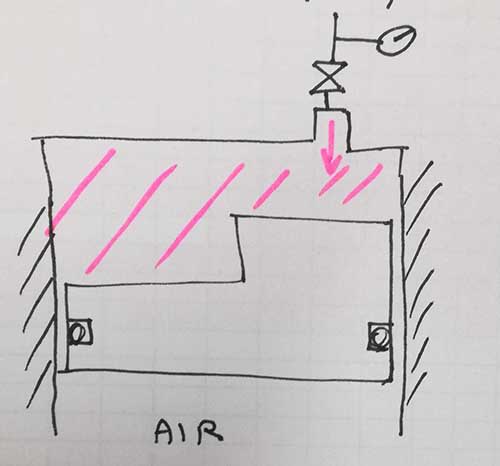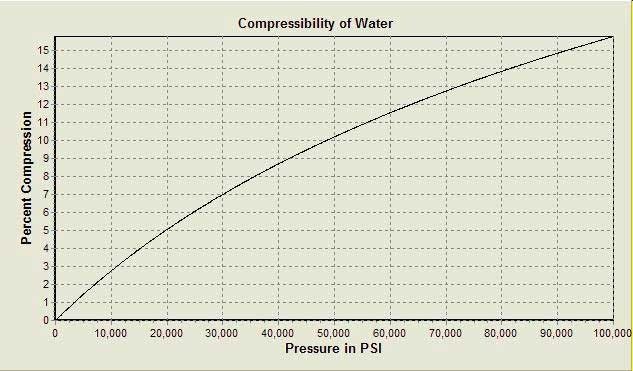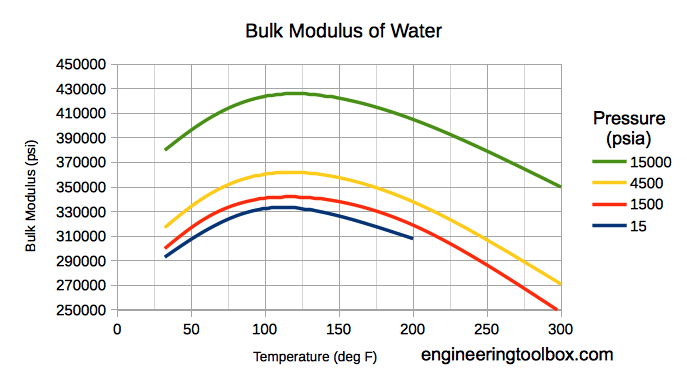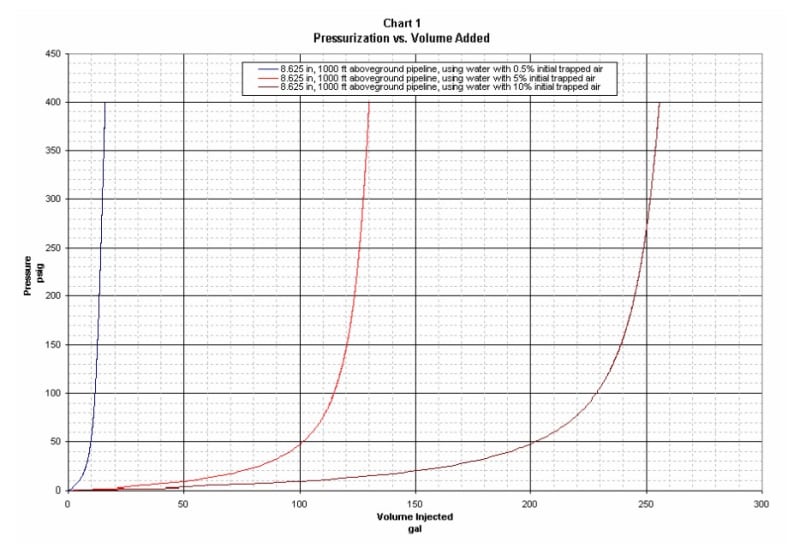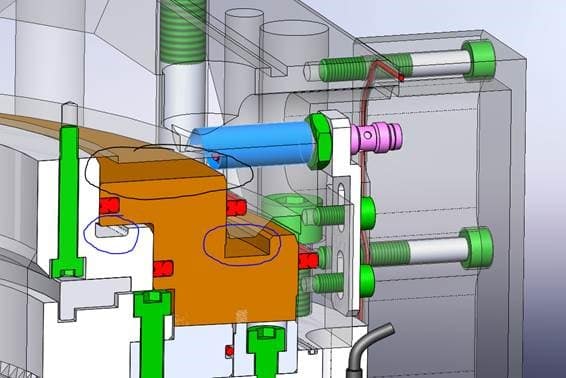gtsolid (Mechanical) (OP) said:
I have a fixed volume room under oil pressure. In 1 night i notice that the pressure lowers of 10%.
Can i conclude, since the oil is incompressible, that the quantity of oil remained is 10% less?
No, the change in oil volume will not be 10% less, but much smaller. There is actually no such thing as an incompressible fluid; the term is just used as a simplification for fluids that are hard to compress. For example, fluids like water and oil are compressible, but it takes such a massive pressure to change the density so that in most cases incompressibility is assumed to simplify hydraulic calculations.
To solve your problem, you have to calculate the compressibility of the oil.
Here is an example, a graph showing the compressibility of a fluid (Compressibility of Water):
In order to calculate the reduction in volume for your oil problem, you have to know the Bulk Modulus of the fluid. The Bulk Modulus is a measure of the resistance of a fluid to compression. It is defined as the ratio of pressure stress to volume.
Note that the B (Bulk Modulus) must be corrected for the temperature, pressure of the fluid, and the amount of entrained air. The following graph shows how temperature and pressure affect the Bulk Modulus of a fluid (Water):
For a real life example, the image below indicates the additional amount of water that is necessary to increase the pressure of a filled pipeline when conducting hydrostatic testing.
To calculate the volume change for your oil problem, you need to know the bulk modulus of oil and then apply it using the simple formula below,
As an example:
MIL-H-83282 oil has a bulk modulus of 3.0 x 10
5 psi. Thus, a pressure increase of 3000 psi will reduce its volume by 1.0%.
When the value of the Bulk Modulus is known, it is simple to calculate the effect of any pressure change on volume, or of any volume change on pressure.
In a real application, the bulk modulus has to be modified for the working pressure, actual temperature and percent of entrained air.
The actual bulk modulus B = EP x ET x EA x Bref, where Bref = Tangent adiabatic bulk modulus psi stated at 100°F, 2500 psi and no entrained air (A reference point).
Link to reference
